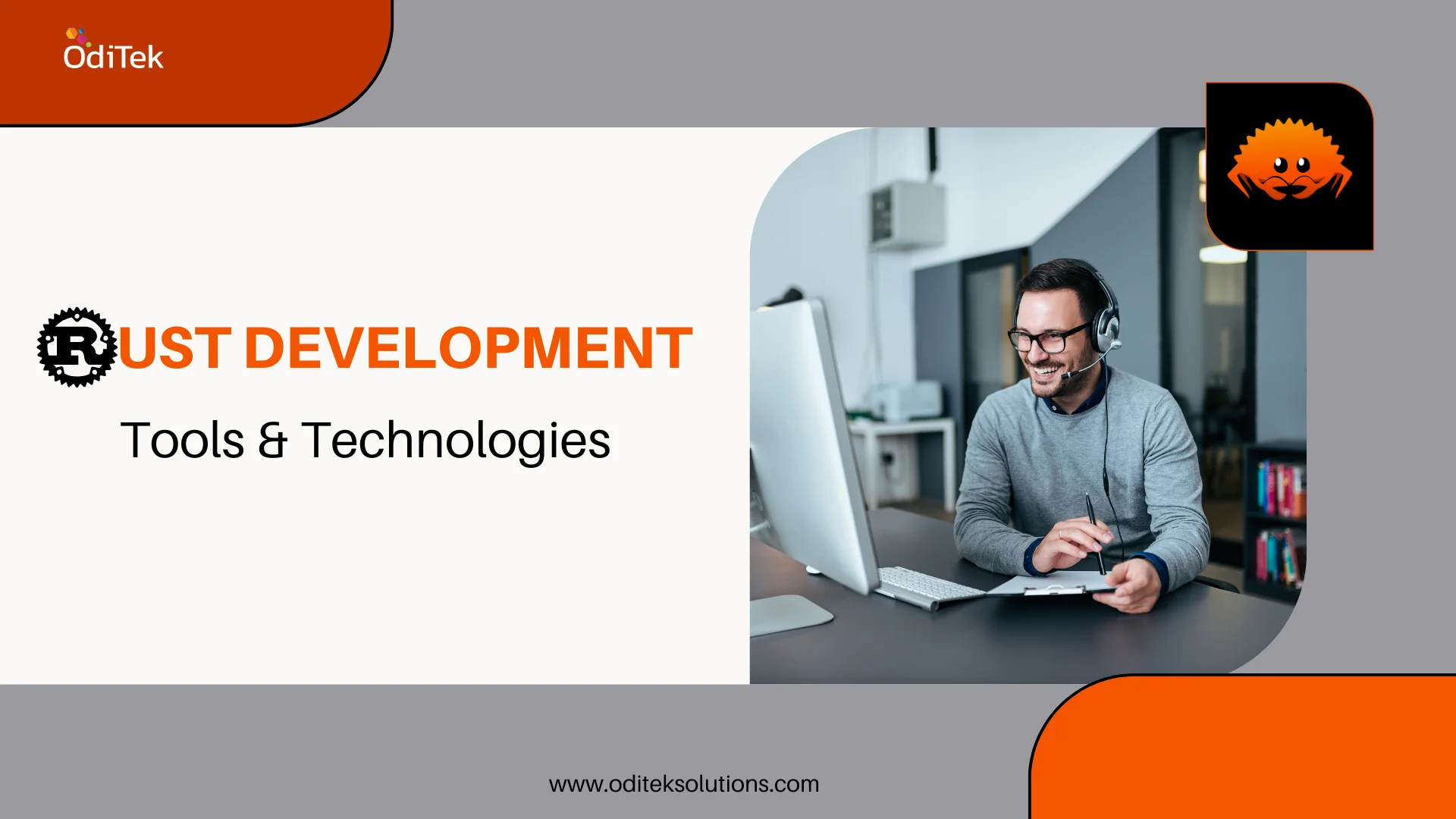Rust is more than just a programming language; it’s a paradigm that has redefined the way developers approach modern software challenges. Whether you’re building web applications, operating systems, graphical user interfaces (GUIs), or desktop software, Rust stands out with its unique blend of performance, safety, and developer productivity.
This blog explores the versatility of Rust development across various domains, showcasing its transformative potential for cutting-edge projects.
Why Choose Rust for Development?
Rust’s growing popularity stems from its core features:
1. Memory Safety Without Garbage Collection: Rust ensures memory safety by design, preventing common errors like null pointer dereferencing and buffer overflows.
2. High Performance: With minimal runtime overhead, Rust rivals C and C++ in speed while maintaining robust safety guarantees.
3. Concurrent Programming Made Easy: Its ownership model simplifies concurrent programming by eliminating data races at compile time.
4. Expanding Ecosystem: From frameworks like Rocket for web development to GUI libraries, Rust’s ecosystem is continually evolving.
These features make Rust development an ideal choice for projects where performance, reliability, and scalability are critical.
Rust Web Development with Rocket
For web developers, Rust offers Rocket, a fast and flexible web framework that simplifies backend development.
Key Features of Rocket
1. Type Safety: Rocket leverages Rust’s strong type system to catch errors at compile time.
2. Rapid Development: With concise syntax and built-in features like routing and request parsing, Rocket accelerates the development process.
3. Performance: Rocket is highly optimized, making it suitable for handling high-traffic web applications.
Developers interested in Rust web development with Rocket often find it a refreshing alternative to traditional frameworks, combining speed with safety.
Rust OS Development
Rust has gained significant traction in operating system (OS) development due to its safety guarantees and low-level control. Projects like Redox OS, a Unix-like operating system written in Rust, exemplify its potential.
Why Rust for OS Development?
1. Memory Safety: Rust eliminates a vast class of security vulnerabilities caused by memory issues.
2. Concurrency: Rust’s safe concurrency model is invaluable for multi-threaded OS architectures.
3. Low-Level Access: Its ability to work seamlessly with hardware while maintaining high-level abstractions makes it ideal for kernel and OS module development.
Rust’s capabilities have made it a go-to choice for researchers and engineers building reliable and secure operating systems.
Rust GUI Development
Creating modern, responsive graphical user interfaces (GUIs) is another area where Rust excels. Frameworks like Druid, Iced, and Slint are empowering developers to design user-friendly applications.
Advantages of Rust in GUI Development
1. Cross-Platform Compatibility: Many Rust GUI libraries support multiple platforms, enabling developers to build applications that work seamlessly across Windows, macOS, and Linux.
2. Performance: Rust’s speed ensures smooth animations and interactions, critical for high-quality GUIs.
3. Community Support: The growing Rust GUI development community provides resources and tools to simplify the learning curve.
Rust Software Development
Rust’s versatility extends to general-purpose software development, catering to industries ranging from finance to gaming.
Key Applications of Rust Software Development
1. Real-Time Systems: Rust’s low latency makes it suitable for time-sensitive applications like trading platforms.
2. Game Development: With frameworks like Bevy, Rust is making inroads into the gaming industry.
3. Data Processing: Rust’s efficiency and concurrency model are perfect for handling large datasets in analytics or machine learning pipelines.
Rust Desktop Development
Rust’s capabilities also shine in desktop application development. Libraries like Tauri and GTK-rs provide tools for creating lightweight, high-performance desktop applications.
Benefits of Rust for Desktop Development
1. Compact Applications: Tools like Tauri allow developers to create small, efficient applications without bundling a heavy runtime.
2. Customizability: Rust’s flexibility makes it easier to implement unique features tailored to specific user needs.
3. Native Look and Feel: Many Rust libraries integrate well with platform-specific UI elements, ensuring a consistent user experience.
Rust Development on Windows
Windows remains a dominant operating system, and Rust’s compatibility with it is a significant advantage.
Why Rust for Windows Development?
1. Interoperability: Rust integrates seamlessly with Windows APIs, allowing developers to build native applications.
2. Security: The memory safety features of Rust help mitigate common vulnerabilities in Windows environments.
3. Tooling Support: The Rust ecosystem provides excellent tooling for Windows developers, from compilers to debuggers.
Popular use cases include building utilities, drivers, and performance-critical applications for Windows platforms.
The Future of Rust Development
Rust’s continued evolution and its adoption by major tech companies like Microsoft, Mozilla, and Dropbox highlight its growing influence in the tech industry. From Rust web development frameworks to operating system kernels, the language’s versatility is setting new standards for software engineering.
Whether you’re developing for the web, desktop, or system-level applications, Rust offers unparalleled reliability and performance, making it a top choice for modern software projects.
How OdiTek Can Support Your Rust Development Needs
At OdiTek, we specialize in harnessing modern technologies like Rust to deliver innovative, secure, and high-performance solutions tailored to your business needs. With our expertise in Rust development, we offer:
1. Custom Software Solutions: We design and implement software that leverages Rust’s performance and reliability for real-world applications.
2. Web and Backend Development: Our team builds scalable and secure web applications using frameworks like Rocket, ensuring seamless functionality and high efficiency.
3. Cross-Platform Desktop Applications: We develop lightweight, responsive desktop solutions that deliver a consistent user experience across multiple operating systems.
4. Operating System and Low-Level Development: From kernel development to OS modules, our team can help you create reliable, secure, and efficient system-level software.
5. Consultation and Support: Whether you’re starting a new project or enhancing an existing one, we provide expert guidance and end-to-end support for your Rust development journey.
Partner with OdiTek to unlock the true potential of Rust for your next software initiative. Let us help you create solutions that are robust, scalable, and future-ready.







